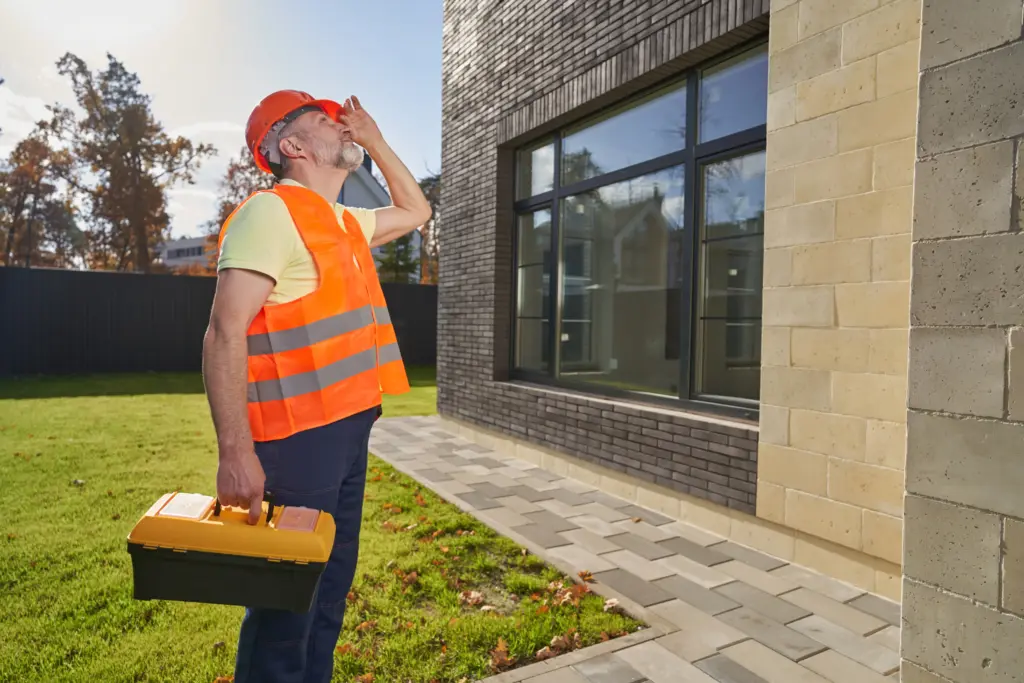Buying or selling a home involves big decisions and real money. You deserve clear facts before you sign. That is where a quality home inspection helps. At Icon Home Inspectors, we inspect every major system with care. We look for defects, risk factors, and safety issues. We translate findings into plain language that you can use.
Many buyers ask why they should schedule an inspection if the house looks fine. Others wonder if a seller should even bother before listing. The answer is simple. A thorough inspection reveals the truth behind fresh paint and staged rooms. It reveals maintenance needs before they turn into urgent repairs. It gives both sides a fair path to negotiate. This guide explains why home inspections are important at every stage of the real estate journey and how they protect your budget, time, and peace of mind.

How a Home Inspection Protects Your Investment
A home can hide problems in walls, crawl spaces, and ceilings. An inspection brings those issues to light. We evaluate roof surfaces, flashing, and drainage. We test outlets, fixtures, and visible wiring. We assess plumbing supply, drains, and venting. We check structure, windows, doors, insulation, and more. When we find deficiencies, you gain leverage and options. You can request repairs, seek credits, or adjust your offer. That is a direct financial benefit.
There is another benefit. You get a roadmap for ownership. Our report lists items to monitor, maintain, or upgrade. You can plan budgets and timelines instead of reacting to surprises. That plan saves time and stress down the road. It also helps you prioritize safety and comfort for your family.
What a Standard Inspection Includes
Every home is unique, yet core systems remain the same. A standard inspection covers the roof, exterior, foundation, structure, heating, cooling, electrical, plumbing, interior, insulation, and ventilation. We use moisture meters to detect hidden dampness. We observe function and condition in real time. We do not guess. We test and verify. For a complete overview of our process, visit our inspection services.
We also document with photos and clear notes. The final report helps you recall details during later talks with your agent or contractor. It also serves as a baseline for future maintenance. You can refer to it in a year and track changes.

Why Inspections Matter for Buyers
Buyers face the most risk. You inherit any hidden defect the day you close. A roof near end of life can cost thousands. A main drain clog can cause a messy backup the first week you move in. Old electrical panels may lack modern safety features. Aging furnaces can fail without warning. An inspection gives you the facts before you take on that risk.
If our report reveals serious issues, you can renegotiate with confidence. You can ask for repairs, price concessions, or both. If the problems exceed your comfort level, you can walk away within your contract terms. That freedom is priceless. It is the primary reason why home inspections are important for first time and seasoned buyers alike.
Why Inspections Matter for Sellers
Pre listing inspections help sellers control the narrative. You learn about defects first. You choose what to fix and what to disclose. You reduce last minute surprises that can kill a deal. Many buyers feel more at ease when a seller presents a current inspection. It shows good faith and care. It can speed up negotiations and support a smoother closing.
When a home shows well and the report confirms condition, you build trust. Trust invites stronger offers. It also shortens time on market. That is an advantage in any market cycle.

How Inspections Reduce Health and Safety Risks
Safety is not optional. It is essential. A professional inspection can reveal shock hazards, missing GFCI protection, unsafe flue connections, loose handrails, and trip hazards. We may find moisture that supports mold growth. We may find venting problems that affect indoor air quality. These risks deserve fast action.
For water efficiency and leak awareness, the U.S. Environmental Protection Agency offers helpful resources. Fixing leaks protects your home and reduces waste. Our inspections often catch early signs, like staining, swollen trim, or elevated moisture readings. Early detection prevents bigger structural damage later.
How Inspections Improve Energy Awareness
Energy use affects comfort and bills. We look at insulation levels, attic ventilation, weather stripping, and appliance age. We check for drafts and hot or cold spots. Small upgrades can produce steady savings. They also improve indoor comfort through all seasons.
For broader homeowner guidance, the U.S. Department of Housing and Urban Development publishes resources on housing upkeep and safe living. Informed owners make smarter upgrades and protect long term value.
What Inspections Do Not Cover
Clarity builds trust. A standard inspection is visual and non invasive. We do not open walls or move heavy furniture. We do not perform code compliance reviews. We do not provide warranties. Specialized testing, such as sewer scoping, radon testing, or mold sampling, may be recommended when conditions point to risk. Those services can be added to your inspection plan as needed.

Why Speed Should Not Replace Due Diligence
Hot markets tempt buyers to waive inspections. That choice may win a bid, yet it also takes on heavy risk. Repairs do not care about your closing date. They arrive when parts fail. A two hour inspection can save months of frustration. It can also save large sums of money. This is another reason why home inspections are important even when homes move fast.
How Inspections Strengthen Negotiation
Negotiation is easier with facts. When our report documents a roof leak, both sides see the same photos and notes. When we record an inoperative outlet, the scope is clear. Facts help buyers request fair solutions. They help sellers respond with confidence. Reasonable outcomes follow clear data. That is good for everyone at the table.
Typical Issues We Find
Some defects appear often across homes and ages. We frequently find missing downspout extensions, which push water against foundations. We see failed or clogged gutters. We note deteriorated sealant around windows and doors. We find slow leaks at sink traps, valves, and water heaters. We see aging furnaces that need service. We also observe reversed polarity or missing junction box covers.
These items may sound small. Yet small issues can lead to bigger ones when ignored. Correcting them early protects finishes, structure, and systems. It also keeps living spaces dry and comfortable.
Value for Investors and Landlords
Investors buy for return on investment. An inspection supports that goal. It reveals capital needs over the next one, three, and five years. It points to rental safety compliance issues. It flags systems near the end of service life. That clarity feeds into pro formas and cash flow plans. Strong data supports better purchase prices and smarter reserves.

New Construction Still Needs Inspections
New homes can have defects. Builders manage complex schedules, crews, and vendors. Missed items happen. We often see roof flashing errors, grading problems, missing insulation, or reversed hot and cold supply at sinks. A pre drywall inspection and a pre close inspection catch many of these items. A one year warranty inspection documents concerns before the builder warranty expires. That is a practical example of why home inspections are important beyond older homes.
How to Use Your Inspection Report
Read your report the same day you receive it. Note safety issues first. Plan quick fixes for those items. Next, review high cost concerns, like roofing or HVAC. Get repair quotes from licensed contractors. Compare quotes and timelines with your closing plan. Finally, review the maintenance list. Schedule seasonal tasks and budget for upgrades. This approach turns a dense report into clear action steps.
Working With Your Real Estate Agent
Your agent and your inspector form a useful team. Agents guide contract terms, repair requests, and strategy. We provide the technical facts that support those moves. Share the report with your agent early. Ask questions. Decide which items matter most to you. Then present a focused request to the seller. Focus wins more than long lists.
Why Local Expertise Matters
Cleveland homes face freeze thaw cycles, lake effect weather, and varied soil conditions. Local experience helps identify risks tied to climate and age. At Icon Home Inspectors, we know common issues in our neighborhoods. We know typical installation practices across decades. That knowledge helps us spot patterns and guide next steps with context.

Added Services That Complement an Inspection
Some homes call for deeper testing. Sewer scopes can reveal root intrusion or pipe failure. Thermal imaging can find insulation gaps. Radon testing measures a serious health risk that lacks smell or color. Moisture mapping tracks leaks that have not yet stained drywall. These tools add clarity when symptoms suggest hidden problems. Ask our team which options fit your home and goals on our services page.
Preparing Your Home for an Inspection
Simple steps help the process. Unlock gates and panels. Clear access to the attic, crawl space, and electrical panel. Move stored items away from water heaters and furnaces. Replace burned out bulbs so we can test fixtures. Install new furnace filters. These tasks save time and reduce the chance of missed areas.
Reading Red Flags During Walkthroughs
You can start spotting signs before you book us. Look for water stains on ceilings. Check for musty odors in basements and baths. Note doors that bind or catch. Observe exterior grading. Watch for peeling paint at window sills. These hints point to moisture, settlement, or ventilation issues. Your notes will help us target deeper checks during the inspection.
The EPA WaterSense program explains how small leaks waste large amounts of water. We often trace high water bills to tiny fixture leaks and weeping valves. Fixes are usually simple and fast. Low cost repairs can prevent drywall damage and mold growth. That protection is one more reason why home inspections are important for owners who want long term savings.

Budgeting After You Move In
Set aside funds for routine care. Gutters need cleaning. Caulk needs replacement. Furnaces need service. Water heaters need attention. Your report lists many of these tasks. Treat that list like a maintenance calendar. Owners who follow a plan avoid emergency calls and rushed choices.
How Our Process Works
Scheduling is easy. Contact Icon Home Inspectors and choose a time. We arrive on schedule and begin with a client briefing. We walk the exterior, roof when accessible, and interior spaces. We test outlets, fixtures, and visible plumbing. We run heating and cooling when conditions allow safe operation. We take photos and notes as we go. We share a same day digital report in most cases. We explain findings in plain terms and answer your questions.
Why Clear Communication Matters
Technical language can confuse clients. We avoid jargon where possible. We define terms and explain impacts. We separate defects from routine maintenance. We mark urgent items for quick action. This clarity helps you make decisions with confidence.

Costs and Return on Value
Inspection fees vary by size, age, and add on services. The fee is small compared to typical repair costs. One avoided major repair can repay the fee many times. In many cases, negotiated credits exceed the inspection cost by a wide margin. That return is a practical example of why home inspections are important for any budget.
Confidence for First Time Buyers
First time buyers face many unknowns. Our team guides you through systems and care basics. We show you main shut offs and filter locations. We point out annual tasks and simple upgrades. We want you to feel prepared the day you get the keys.
Peace of Mind for Long Time Owners
Even seasoned owners benefit from a fresh look. Homes evolve as parts age and as work gets done over the years. A periodic inspection can catch wear that you have stopped noticing. It can help prioritize projects that deliver comfort and value.
Choosing the Right Inspection Partner
Look for local experience, clear reporting, and strong reviews. Ask about tools and add on services. Confirm availability for questions after delivery of the report. Our clients choose us for careful work, fast reporting, and practical guidance. Explore our services to see how we can support your next move.

Key Takeaways
- Inspections reveal hidden defects before you commit.
- Reports guide fair negotiations and smart budgets.
- Safety findings protect your family and guests.
- Energy insights improve comfort and reduce bills.
- Local expertise matters in Cleveland’s climate.
In short, you now know exactly why home inspections are important. They protect your money, your time, and your safety. They provide leverage during contract talks. They build a plan for ownership after closing. They also support responsible stewardship of your property and resources.
Schedule Your Inspection
Ready to move forward with confidence. Book your inspection with Icon Home Inspectors today. Our team serves Cleveland and nearby communities with careful, reliable work. We bring tools, training, and a service mindset to every home. We are here to help you make a clear and informed decision.
If you want more detail on our process and add ons, visit our inspection services. Our friendly staff can help you build the right package for your property and timeline.
Now you can see why home inspections are important for buyers, sellers, and owners. Use this moment to protect your investment and plan your next steps with certainty.